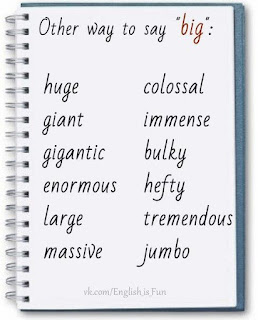Showing posts with label composition. Show all posts
Showing posts with label composition. Show all posts
Tuesday, December 17, 2013
Saturday, March 2, 2013
Saturday, November 17, 2012
Tuesday, October 30, 2012
Saturday, October 20, 2012
How to Write a Great Short Story for ESB
Short Stories
A short story is a piece of fiction under 20,000 words. More typically, a short story will be 1,000 – 5,000 words. (Pieces under 1,000 words are “short short stories” or “flash fiction”, over 20,000 and they’re novellas.)
Short stories are published in magazines, newspapers and book anthologies. Short stories need:
- A small cast of characters, with one main character
- A compact time frame, with the story taking place over the course of a few days or weeks
- A single plot without subplots, though longer short stories may have a subplot
The majority of writing competitions are for complete short stories, rather than novels or novel excerpts. If you do enter competitions, don’t be put off writing if you don’t win – judges have different likes and dislikes.
How to Write a Great Short Story
Like any story, your short story needs to have a beginning, middle and end:
- The beginning is where we’re introduced to the characters, especially the main character and his/her problem
- The middle is where the action and plot develops. The main character will face difficulties such as opposition from other people or a challenging environment.
- The end is where the main character triumphs over his/her biggest challenge (or fails, in the case of a tragedy). The resolution should be satisfying and conclusive for the reader.
Even in literary and experimental short stories, it’s important that something should happen. Much of the action might take place inside the characters’ heads, but there should be a real change as a result.
By the end of your short story, your main character should have experienced an internal change. This means that they’ve grown and developed as a person – perhaps overcoming a fear, or recognizing an unacknowledged truth about himself or herself.
Thursday, September 27, 2012
Tip of the day: Writing Stories for ESB
It's true that stories are considered by a lot of students as the easiest type of
writing for ESB. That is most of the times true.
In fact, there are still some "secrets" that you should be aware of if you choose this
particular type of writing.
So, let's start:
You must have been probably told by your English teachers that in ESB story writing you
should include Direct Speech(e.g."Something's wrong is going on!" he said).
So, here's the Tip of the day : Try to adoid using the verb said as it is
considered simplistic and boring. Here is a wide range of verbs that you can use
instead of said!!
Monday, September 24, 2012
Tip of the day: Composition
Your composition is going to worth a million if you use interesting words instead of the same old ones!! Keep that in mind B2 students!
Subscribe to:
Posts (Atom)

-
Έρευνες έχουν δείξει ότι η διάθεση για ανάγνωση μειώνεται σταδιακά καθώς τα παιδιά μεγαλώνουν και αυτό συνήθως οφείλετε σε έλλειψη ε...
-
By Michael McWatters on April 30, 2016 in TED-Ed Lessons At the start of Autism Acceptance Month, author Steve Silberman spoke to the...












































